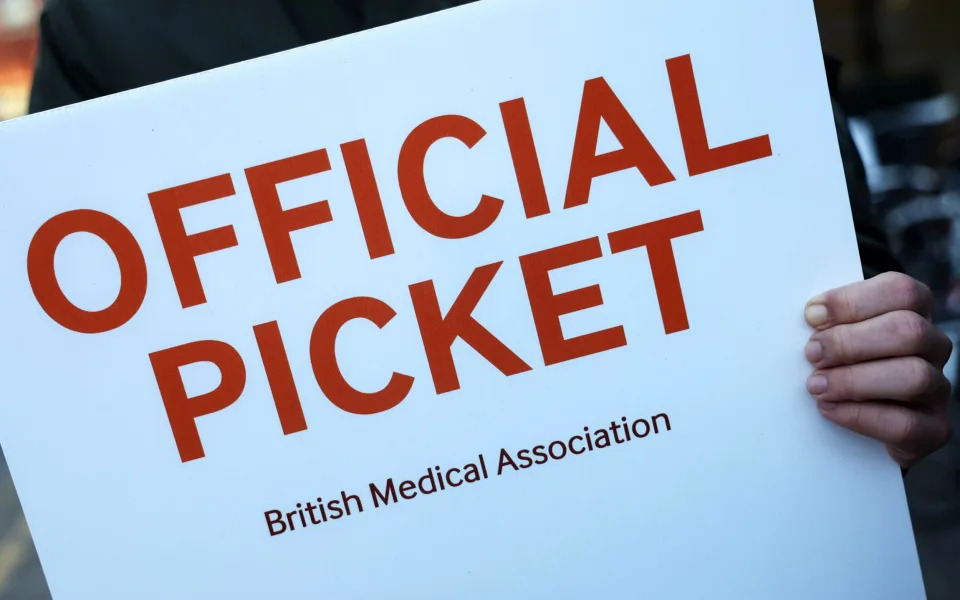Sainsbury’s to hike hourly pay for 120,000 staff across UK
Anna Wise, PA
Thu, 4 January 2024

Sainsbury’s has revealed plans to hike the hourly wages of 120,000 staff as part of £200 million worth of investment in pay increases.
The supermarket chain, which also owns Argos, said hourly paid employees will see their salaries increase from £11 per hour to £12 per hour in March.
Staff in London, where living costs are typically higher, will be paid £13.15 per hour, up from £11.95.
The National Living Wage is set to rise from £10.42 to £11.44 from April, and for the first time will apply to 21 and 22-year-olds.
The move from Sainsbury’s will mean its staff are paid 56p more per hour than the Government minimum wage, and a month earlier than the official rate comes into effect.
The UK’s Chancellor Jeremy Hunt said it was “great to see Sainsbury’s rewarding hard work” with the nationwide pay increase.
Simon Roberts, the chief executive of Sainsbury’s, said: “Our colleagues do a brilliant job delivering for our customers every day and at the same time they are continuing to face the rising costs of living.
“So, in addition to investing to keep our prices low for customers, I’m delighted to confirm an industry-leading pay increase again this year for all our hourly paid colleagues.”
The retail giant has increased employee pay by 50% since 2018 and by 9% since last year.
It also offers workers free food during shifts, and a discount of 15% for Sainsbury’s staff every Friday and Saturday and Argos staff every payday.
Bally Auluk, the national officer of trade union USDAW, said: “The continuing strong working relationship between USDAW and Sainsbury’s has resulted in an inflation-busting pay award of over 9%, despite inflation falling and following on from the significant pay increases over the previous couple of years.”
Sainsbury’s injects £200m for staff pay as bumper Christmas helps stave off Lidl and Aldi threats
Laura McGuire
Thu, 4 January 2024

Sainsbury's has been battling it out to retain customers hit by inflation. The relaunch of Sainsbury’s Nectar card, which now offers customers lower prices on 300 items, represents an attempt to gain ground back
Some 120,000 employees at Sainsbury’s and Argos are set to have their hourly wage increase, as the supermarket injects £200m into improving pay.
Staff at the ‘Big Four’ grocer will now be handed £12 per hour, in line with the Real Living Wage. For workers in London this will leap to £13.15.
Sainsbury’s has increased pay by 50 per cent since 2018 and by nine per cent in the last year. Employees are expected to see the increase come March.
Simon Roberts, chief executive of Sainsbury’s, said that for a full time colleague, this is an extra £1,910 a year.
“This increase is well ahead of inflation and the government’s 2024 national living wage of £11.44,” he said.
“We continue to lead our industry in the level of reward and benefits we provide for our people and this remains a clear priority for us at Sainsbury’s.”
“We believe well rewarded, engaged colleagues deliver the best service and attracting and retaining the best talent will be crucial to our success in delivering the next phase of our business strategy,” he added.
Sainsbury’s said the investment of £200m brings the three year total investment in colleague pay to over £500m.
In recent years the British retailer has had to compete with German discounters Lidl and Aldi, who are amongst the highest payers for supermarket roles.
Inflation led prices rises also weakened consumer confidence in the brand as shoppers feared big players in the grocery space were not passing cost cuts on to customers.
However, Sainsbury’s was one of the big winners over the Christmas period with the company’s market share hitting 15 per cent over the festive per




.jpg)











